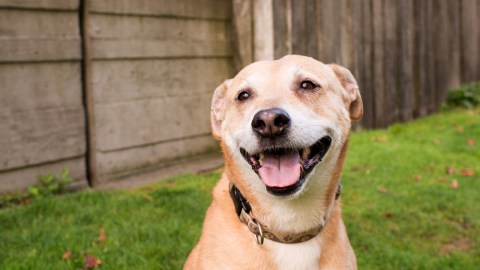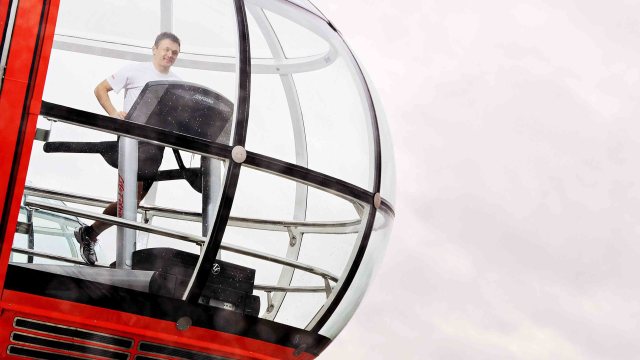Dogs Are Better than Humans at Resisting Peer Pressure, Filtering Bad Advice

Dogs are more no-nonsense than humans. A study from Yale University’s Canine Cognition Center reveals that dogs are better than people at filtering bad advice from good. In the experiment, researchers presented over 40 breeds of dogs with treats hidden inside puzzles. They then demonstrated the steps necessary to solving the puzzle. In doing so, they also included many unnecessary steps. When the dogs proceeded to solve the puzzle, the skipped the steps that had nothing to do with getting to the treats. Thus, the study revealed dogs’ ability to filter useful actions from irrelevant ones. Jeffrey Kluger sums up the results pithily in an article for Time: “[I]f dogs did wear pants, they would use either a belt or suspenders, but definitely not both.”
Humans, on the other hand, are not so savvy. When contrasted with a similar study from Yale that examined children, humans were found to rely more on imitation and failed to filter out unnecessary information. Bill Hathaway summarizes:
[C]hildren watched a demonstrator solve a puzzle by first moving a lever and then lifting a lid to pull out a prize. Although the lever was completely irrelevant for solving the puzzle, children repeatedly performed both actions, even when they were in a race to solve the puzzle as quickly as possible.
Whereas dogs are able to do away with unnecessary steps between them and treats, kids merely imitate the behaviors observed – both necessary and unnecessary – to access the item they want.
Another study from about a decade ago that looked at chimpanzees as well as humans drives home this contrast even more starkly. Both displayed a proclivity toward imitation over efficiency, with humans being the worse culprits. Compared with monkeys and mutts, we are the most easily duped by the silliness of others.
These conclusions about how human beings learn through imitation have deep implications for how we construct and navigate our environments. Yale Professor of Psychology Laurie Santos articulates the scope of these ramifications:
So this tells us something really important about how humans learn relative to other animals. We’re really trusting of the information that we get from other individuals – even more trusting than dogs are. And what this means is we have to be really careful about the kinds of information we present ourselves with. We’re not going to have the right filter for bad information, so we should stick to looking at information that’s going to be positive, information that’s going to be good.
Our tendency to be influenced by the individuals we are exposed to might mean that we choose much of our social stimuli – who we hang out with, what news sources we consult, or perhaps even where we live – more carefully.
But we need not despair at our relative shortcoming for discernment: our propensity for emulation turns out to be quintessentially helpful to human beings. As Angie Johnston, a PhD student at Yale and the principal author on the publication for the dog study, reflects:
Although the tendency to copy irrelevant actions may seem silly at first, it becomes less silly when you consider all the important, but seemingly irrelevant, actions that children are successfully able to learn, such as washing their hands and brushing their teeth.
As writer Cari Romm adds in an article for New York magazine, such proclivities to imitate are necessary for children with no understanding of hygiene to perform such behaviors. While dogs may beat kids to finding the prize efficiently, you’d be hard-pressed to get a dog to brush their teeth.





